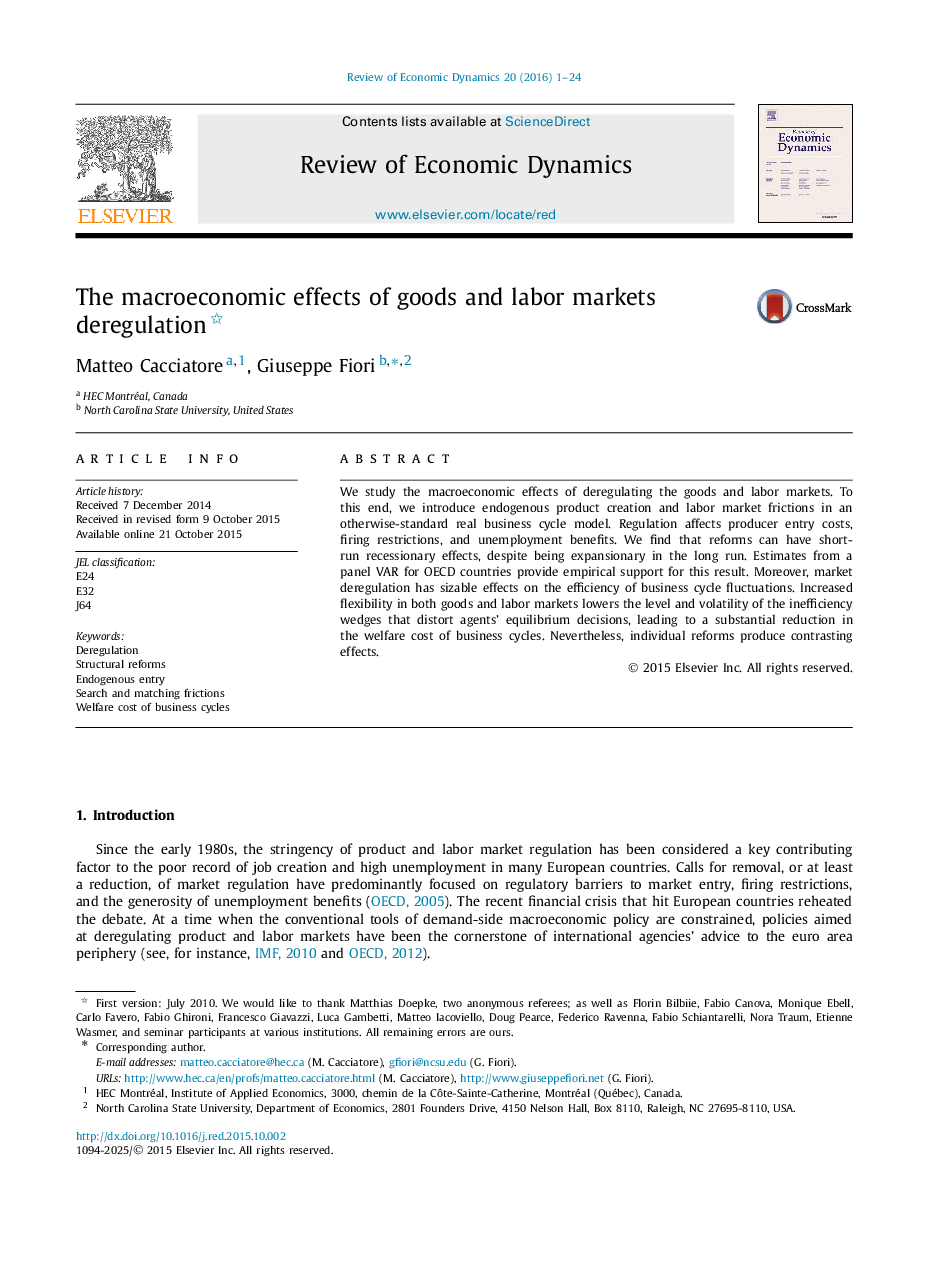| Article ID | Journal | Published Year | Pages | File Type |
|---|---|---|---|---|
| 986299 | Review of Economic Dynamics | 2016 | 24 Pages |
We study the macroeconomic effects of deregulating the goods and labor markets. To this end, we introduce endogenous product creation and labor market frictions in an otherwise-standard real business cycle model. Regulation affects producer entry costs, firing restrictions, and unemployment benefits. We find that reforms can have short-run recessionary effects, despite being expansionary in the long run. Estimates from a panel VAR for OECD countries provide empirical support for this result. Moreover, market deregulation has sizable effects on the efficiency of business cycle fluctuations. Increased flexibility in both goods and labor markets lowers the level and volatility of the inefficiency wedges that distort agents' equilibrium decisions, leading to a substantial reduction in the welfare cost of business cycles. Nevertheless, individual reforms produce contrasting effects.
